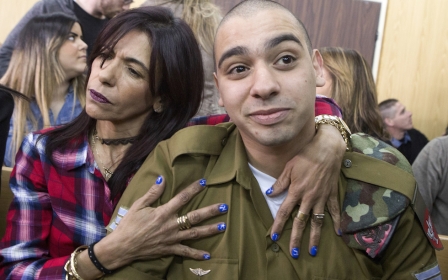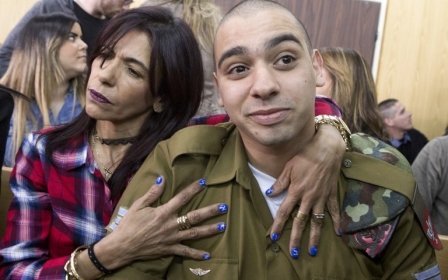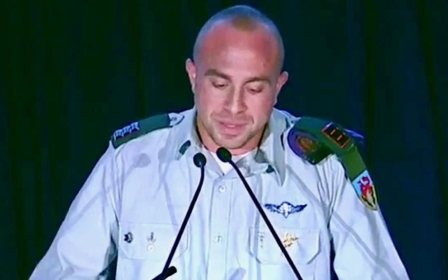Israeli president rejects pardon of convicted soldier Elor Azaria
Israeli President Reuven Rivlin on Sunday rejected a request to pardon a soldier convicted of manslaughter for shooting dead a Palestinian man.
His decision came after the Israeli military chief of staff reduced the sentence for Elor Azaria, 20, who shot dead 21-year-old Abdel al-Fattah al-Sharif at close range in Hebron.
A statement by Rivlin's office confirmed that it had formally rejected the pardon for Elor Azaria.
"President Reuven Rivlin today took the decision to deny the request for pardon filed by Elor Azaria," it said in an English-language statement, exactly one month after the jailed soldier submitted the request.
Azaria's sentence was reduced from 18 to 14 months and announced nearly a year after he shot a bullet from a close range into the head of Sharif.
The former Israeli soldier shot dead Sharif in March 2016. The incident was caught on video by a human rights group and this was later spread online and went viral.
The video showed Sharif lying on the ground wounded and shot along with another Palestinian, Aziz al-Qasrawi, after stabbing and wounding a soldier, according to reports by the Israeli army.
Eleven minutes after the initial shooting, Azaria, a sergeant and military medic at the time of the incident, shot him in the head without any visible provocation.
Azaria said he feared Sharif was wearing an explosive belt and on the verge of blowing himself up, a claim judges rejected.
He was sentenced to 20 months in prison, but the military trial gave Azaria 18 months. This was later upheld by a military court following an appeal.
Many Palestinians viewed Azaria's conviction as a farce.
Polls at the time showed that most Israelis agreed with Azaria's actions and agreed with his refusal to show any remorse.
They believed he acted appropriately and supported his actions.
However, during the trial, it emerged that Azaria had extreme anti-Arab views, which he expressed online.
Facebook posts showed that the former Israeli soldier called for the massacre of every Palestinian in Gaza during the 2014 war.
He also admitted having spent a great deal of time in Hebron with followers of the late Meir Kahane, a rabbi whose anti-Arab Kach party was outlawed in 1994 after a supporter, Baruch Goldstein, shot 29 Palestinians in Hebron's Ibrahimi mosque.
New MEE newsletter: Jerusalem Dispatch
Sign up to get the latest insights and analysis on Israel-Palestine, alongside Turkey Unpacked and other MEE newsletters
Middle East Eye delivers independent and unrivalled coverage and analysis of the Middle East, North Africa and beyond. To learn more about republishing this content and the associated fees, please fill out this form. More about MEE can be found here.




